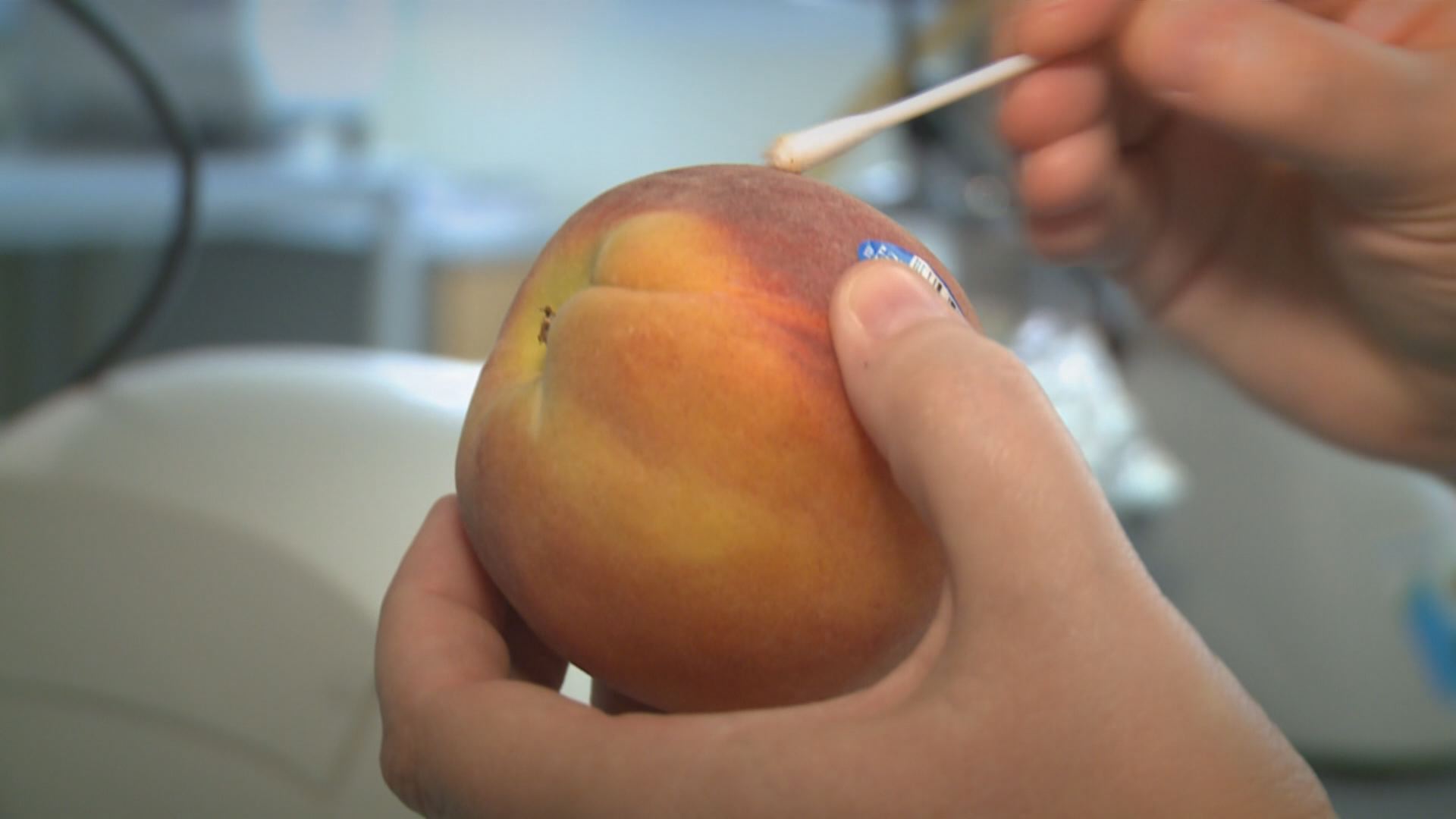![WJXX FRUIT PRODUCE TEST [ID=14104415]](http://moc-assets-prod.gannett-cdn.com/-mm-/33d97f8a03d5ea06baca0f7a30eca34c8bd87643/r=500x281/local/-/media/WFMY/WFMY/2014/08/15/1408113062000-WJXX-FRUIT-PRODUCE-TEST.jpg)
JACKSONVILLE, FL -- Several grocers recently notified their customers regarding a fruit recall by Wawona Packing Co.
The customers were informed that they may have purchased the contaminated fruit. The list of fruits on the list includes peaches, plums, nectarines and pluots.
The recall prompted the our news partners at First Coast News' "On Your Side" team to conduct its own tests to see if the food we eat is safe.
Dr. Terrie Ellis is a microbiologist at the University of South Florida. She says the food we eat is generally safe and agreed to test some items.
"What we're doing today we'll be able to see how much bacteria is on there," said Dr. Terrie Ellis.
The concern is bacteria like listeria, E.coli and salmonella. Listeria is powerful enough to cripple even the strongest person.
"It causes an infection in your GI tract, including diarrhea, fever, pain and it is primarily a concern for pregnant women who have compromised immune systems,' said Ellis.
Peaches, plums, nectarines, a head of lettuce and a bag of pre-washed lettuce were tested in Dr. Ellis' lab.
"I think the primary thing we're going to find is actually mold,' she said.
Ellis said the way fruits and vegetables are handled from the field to the store shelves impacts how safe they are to eat.
"I think we will find some bacteria of the common variety" she said.
Ellis took samples of the fruits one by one and placed the samples on a petri dish. She then washed some of the lettuce and repeated the testing procedure on both the head of lettuce and the pre-washed bag of lettuce, in 72-hours the results were in.
"The peach has a number of different colonies, the plum, even the lettuce that comes out of the bag that they say had been washed," said Ellis.
However, the nectarine had the most colonies of bacteria, said Ellis.
"That may not have anything to do with the nectarine that may have to do with the box it was in," she said.
What was surprising was the lettuce both the pre-washed and the leaves that were washed at the lab..
"It certainly had quite a few bacteria growing on it," said Ellis, " We reduced the number of bacteria by washing but did not eliminate them."
Ellis would like to see more testing by the FDA before raw fruits and vegetables enter the food chain. But until that happens she says the burden is on us.
"The take away is that if you really want to reduce the number of bacteria that are on your fresh produce is to wash them immediately before eating," said Ellis, " washing them when you first get them at home and leaving them out gives the bacteria more time to grow back."
Dr. Ellis also said cooking them completely will reduce your chances of coming in contact with bacteria that will make you sick.


